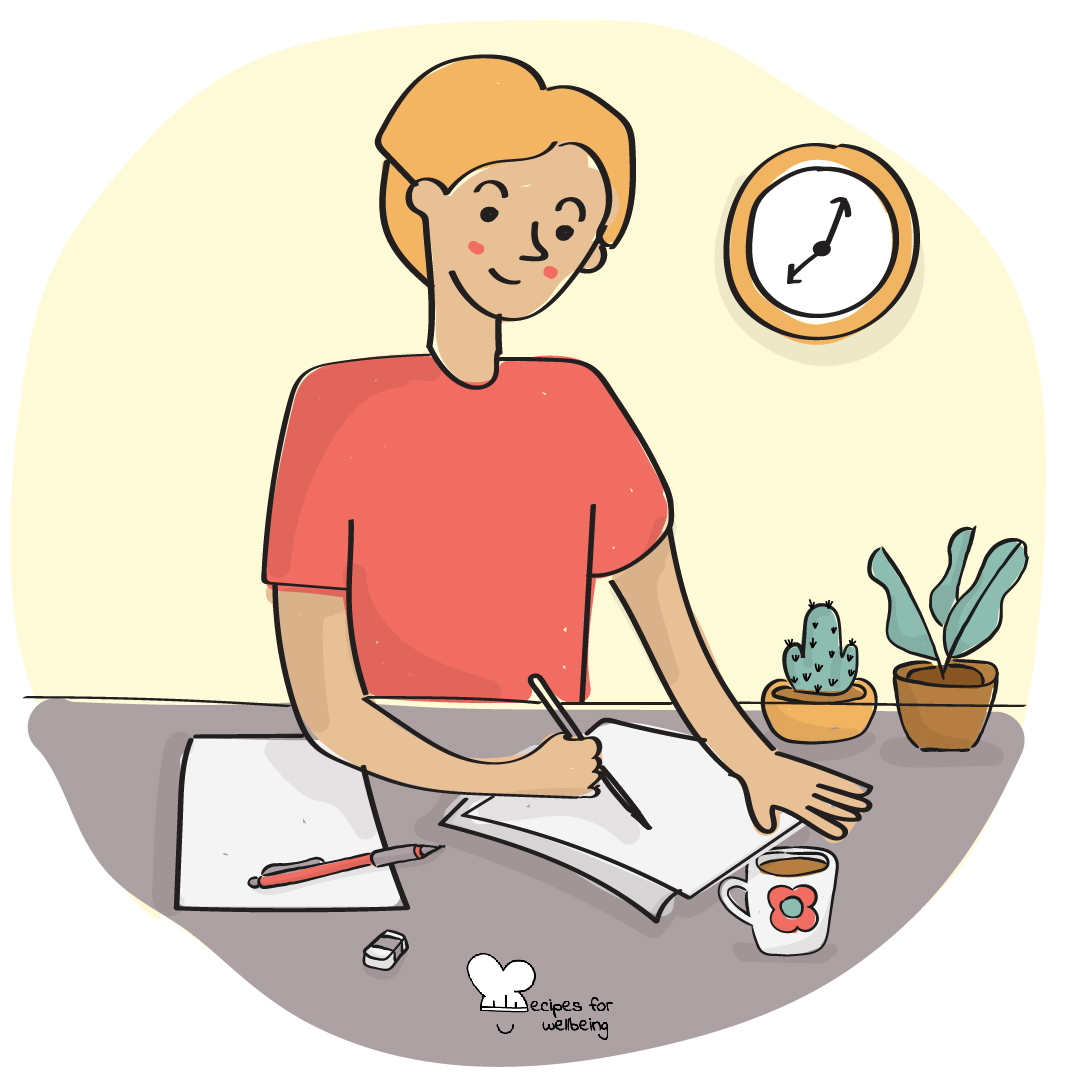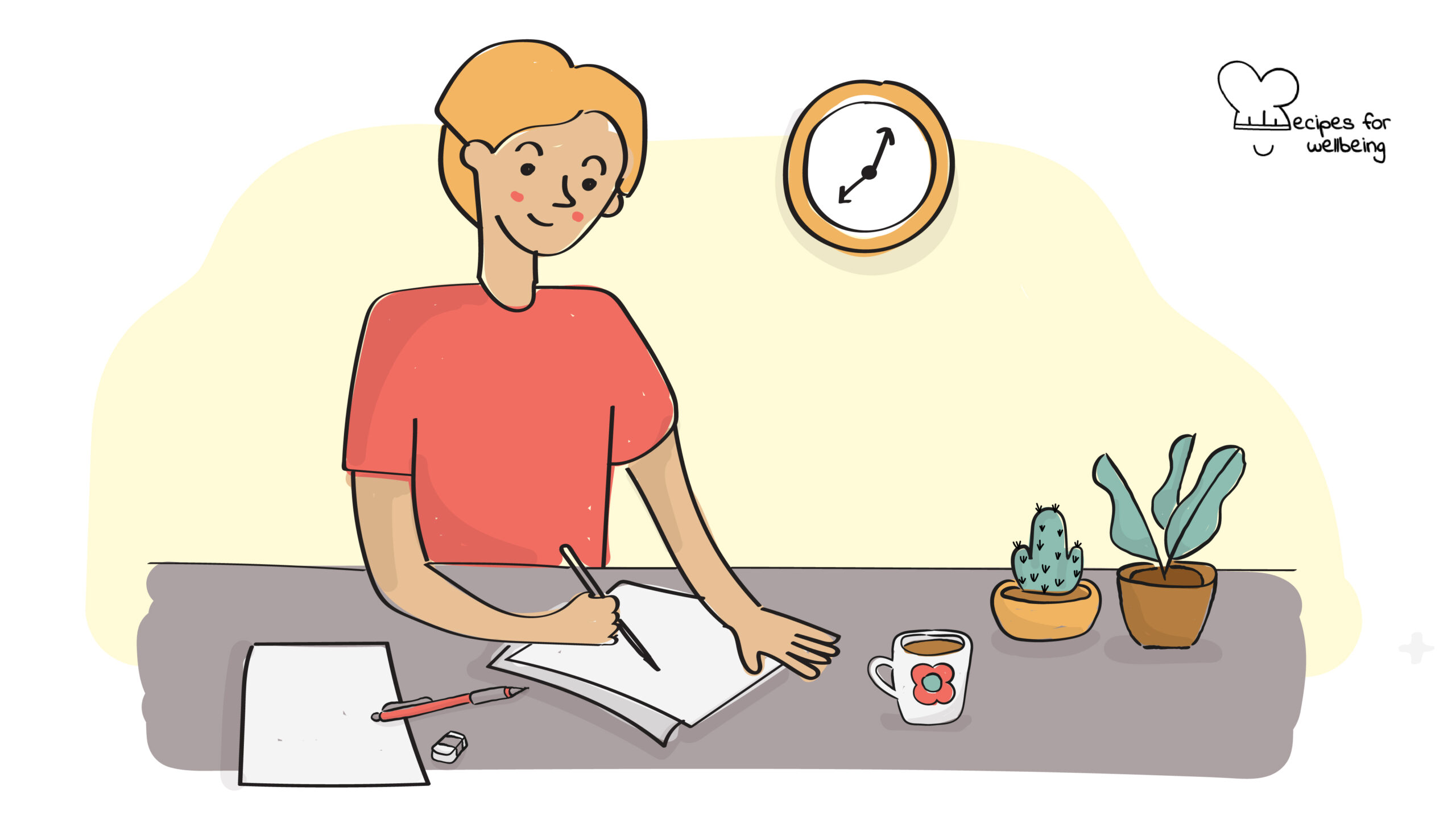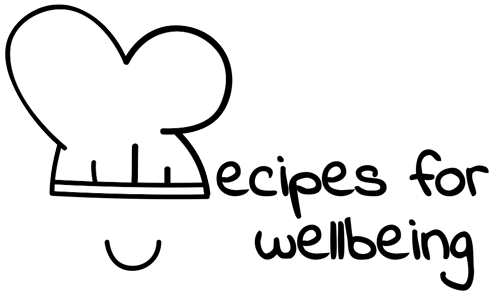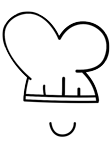
Individual reflection
Insights gained through critical self-awareness are emancipatory in the sense that at least one can recognise the correct reasons for his or her problems. ―Jack Mezirow
 Serves: 1 person
Serves: 1 person
 Difficulty: Medium
Difficulty: Medium
 Total time: 31-60 minutes
Total time: 31-60 minutes
 Ingredients: Pen and paper
Ingredients: Pen and paper
 Wholebeing Domains: Awareness, Ritualising
Wholebeing Domains: Awareness, Ritualising
 Wholebeing Skills: Contemplation, Hosting yourself, Journaling, Reflection, Refuge, Ritualising, Self-awareness, Solitude
Wholebeing Skills: Contemplation, Hosting yourself, Journaling, Reflection, Refuge, Ritualising, Self-awareness, Solitude

Individual reflection
 Description
Description
A reflection practice leading to action.
Reflection is an essential component of learning, which can then ignite change in behaviour. The following activity has been taken from Hyper Island Toolbox, whereby “individual reflection helps to pick apart complex experiences, so that the successes of the experience can be repeated or improved, and the failures provide learning opportunities for growth.” What is key here is that reflection alone does not spark change – it must be an intentional process which leads you to take concrete action. The format of this individual practice is flexible and can be adapted to different group sizes, whereby participants are paired up or placed in small groups for the final sharing and commitment to action.
Inspired by: The Reflective Practitioner, Donald A. Schön, 1983. Learning by Doing: A Guide to Teaching and Learning Methods, Graham Gibbs, 2001
 Steps
Steps
Step 1 – Create the space (5’)
This is an individual exercise. You are facilitating your own reflective process. First, create the right physical and mental state for reflection. Finish any pressing tasks. Send any important emails. If possible, go somewhere quiet.
Step 2 – Check-in (5’)
Check-in with yourself: How do I feel? How was the day? What’s on my mind? Take a few moments to become present in the moment. Decide what experience your reflection will focus on (e.g. an experience that has recently taken place, a social interaction, a recent event, etc.).
Step 3 – Reflect and write (30’)
You may wish to write down reflections with a pen and paper, free from the distractions of computers, phones, or tablets. You may want to set timings for each of the following questions, if time is of any concern:
- What happened during the experience?
- How did I feel and what were my reactions?
- What insights or conclusions can I draw from the experience? What did I learn?
- How can I apply what I learned to improve future experience? What actions can I take based on what I learned?
Step 4 – Take action (20’)
If relevant, set deadlines for each of the actions you have identified during your reflections and share them with a colleague. Your colleague can support you by holding you accountable to complete them.


 Arabic
Arabic Chinese (Simplified)
Chinese (Simplified) Dutch
Dutch English
English French
French German
German Italian
Italian Portuguese
Portuguese Russian
Russian Spanish
Spanish